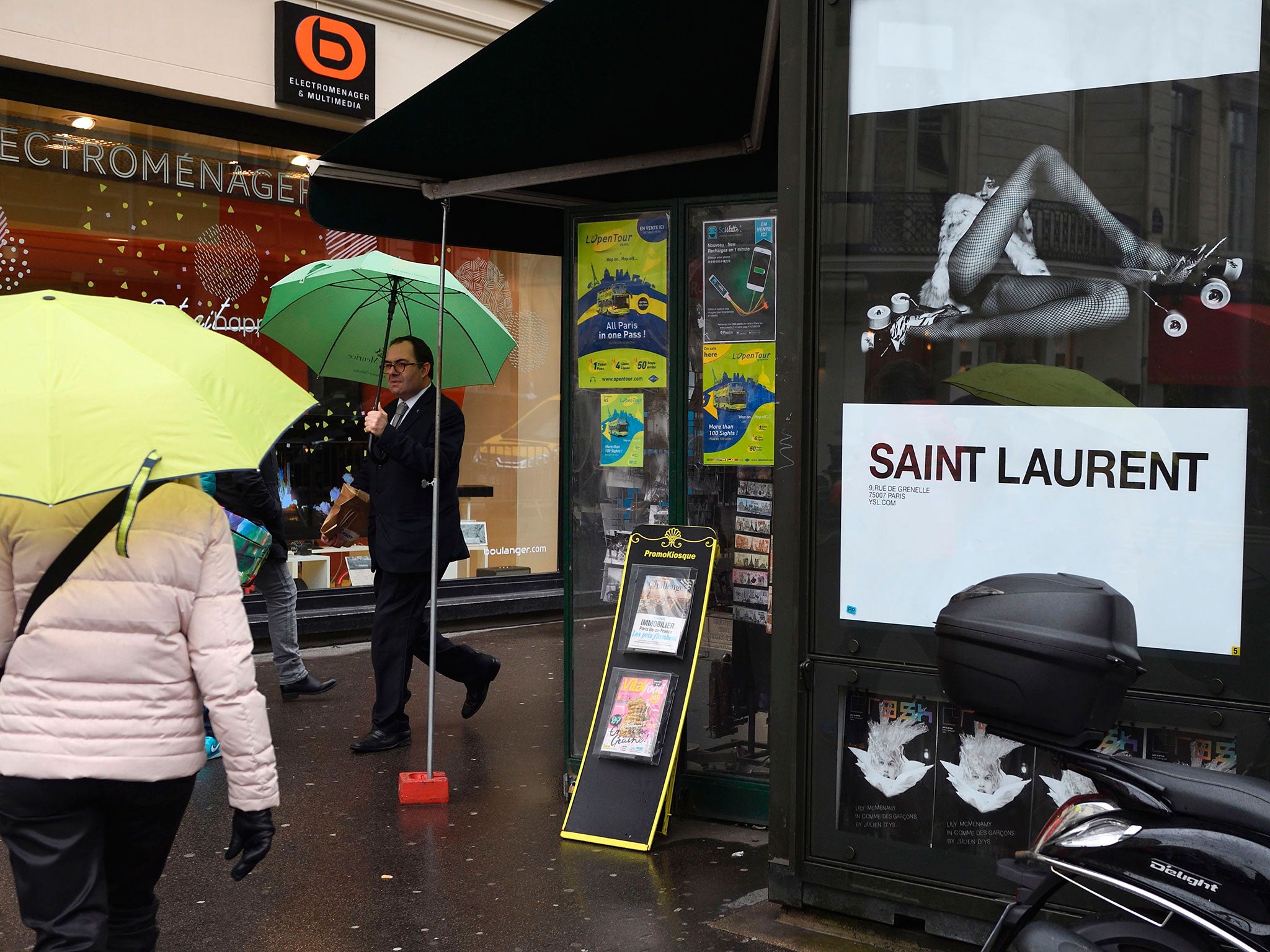France bans unhealthily thin models with law requiring doctor's certificate
New rules will also require digitally altered images to be labelled

Your support helps us to tell the story
From reproductive rights to climate change to Big Tech, The Independent is on the ground when the story is developing. Whether it's investigating the financials of Elon Musk's pro-Trump PAC or producing our latest documentary, 'The A Word', which shines a light on the American women fighting for reproductive rights, we know how important it is to parse out the facts from the messaging.
At such a critical moment in US history, we need reporters on the ground. Your donation allows us to keep sending journalists to speak to both sides of the story.
The Independent is trusted by Americans across the entire political spectrum. And unlike many other quality news outlets, we choose not to lock Americans out of our reporting and analysis with paywalls. We believe quality journalism should be available to everyone, paid for by those who can afford it.
Your support makes all the difference.France has banned unhealthily thin models as part of a new law targeting “unrealistic body images” and eating disorders.
Models will be required to provide a doctor’s certificate attesting to their overall health and proving their body mass index (BMI) sits within a healthy range in order to work.
The measurement will be compared to the World Health Organisation’s definitions of underweight to decide whether a model is certified, although a minimum BMI has not been set after protests from modelling agencies.

France's minister of social affairs and health, Marisol Touraine, said the documents would be valid for two years “attesting that their state of health is compatible with their work”.
“Exposing young people to normative and unrealistic images of bodies leads to a sense of self-depreciation and poor self-esteem that can impact health-related behaviour,” she added.
“These two texts aim to act on body image in society to avoid the promotion of inaccessible beauty ideals and to prevent anorexia in young people.
“The objective is also to protect the health of a sector of the population particularly at risk – models.”
The law was backed by French MPs in 2015, who supported punishing employers who violate the new rules with up to six months imprisonment and a €75,000 fine (£64,000).
Models under the age of 16 will have their BMI calculated during medical check-ups, by doctors who will check nutrition and growth.
The second law will require photos where a model’s silhouette has been digitally altered to be marked with the label “photographie retouchée” from 1 October.
Anorexia is believed to affect up to 40,000 people in France, 90 per cent of whom are women, and there have been several controversies over the use of excessively thin models in advertising.
The new laws came into effect little over a month after Paris banned sexist and discriminatory adverts in an effort to stop “degrading” representations of men and women, homophobia and racism.
In March, the French fashion house Yves Saint Laurent was ordered to modify two “degrading” adverts by France’s advertising watchdog.
One poster featured a reclining woman in a fur coat and fishnet tights, with her legs spread wide, and the other showed a model in a leotard and stilettos bending over a stool.
The adverts caused uproar on social media, where critics said the fact the models were very thin could have a damaging impact on teenage girls.
Britain's Advertising Standards Authority previously banned a Saint Laurent ad in 2015 that featured an “unhealthily underweight” model whose ribcage was showing.
Italy, Spain and Israel are among other countries to draw up legislation for models , while there have been similar calls in the UK.
Join our commenting forum
Join thought-provoking conversations, follow other Independent readers and see their replies
Comments